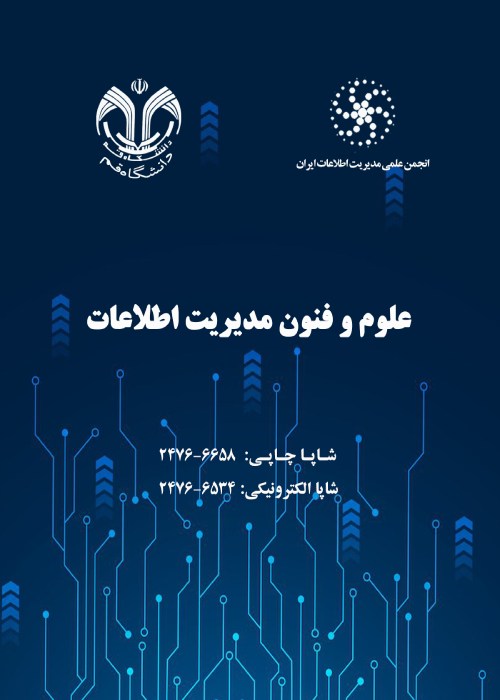Challenges of Using Library Applicationsin University Libraries (Case Study of Tehran University of Medical Sciences)
The main purpose of this article is to achieve the main challenges of not using library applications. To achieve this goal, three basic questions were raised: what are the three main challenges of using mobile library applications? What is the priority of these challenges in Iranian university libraries? What is the communication model for these challenges?
This research is of an applied-developmental type with a mixed Method approach, because a part of the data is collected from the study of texts and qualitative content analysis, and another part is obtained from the survey, and for modeling, the structural-interpretive method, which is a quantitative method. The research community in the first part: articles of the 10-year period from 2010 to 2020 with the keywords "library", "application", and "mobile", have been used in ProQuest, Science Direct, Elsevier, Emerald, Scopus, and Google Scholar databases. The collection tool in the second part of this research was a 25-question questionnaire made by the researcher based on the Likert scale; the community of the second part included librarians of medical sciences libraries in Tehran and specialists in the design of simulations, whose number was about 70 people. And the research community in the third part included two groups: 7 library and information professors, 7 application design specialists, and a total of 14 people as an expert panel based on targeted sampling with the criteria of designing at least 1 successful application for specialists and carrying out a research project practical or theoretical for professors.
The study of various texts showed that there are 5 main challenges for using mobile applications in libraries: challenges related to the financial situation, cultural challenges, technical challenges, knowledge and expertise challenges, and interpersonal communication challenges. The prioritization of these challenges from the point of view of library professors and experts in the field of applications were cultural, financial, knowledge and expertise, technical, and interpersonal communication challenges, which were different from the results obtained from the structural-quantitative modeling section; In the structural-interpretive modeling section, these challenges are divided into two: 1. Technical, knowledge and specialization and cultural challenges, these challenges have a great power of influence as well as the power of dependence, they are also related to each other and to the challenges of the second level; But the challenges of the second level, which include; 2. financial and interpersonal communication challenges; which are very close to the first level in terms of influence and dependence, but these two challenges are actually more effective than the first level from the point of view of experts, in the sense that the challenges of the first level are often considered as fixed challenges, while the challenges of the second level can be changed and They have more adjustments. Among the components of the second level of the financial challenge in MICMAC analysis, it was identified as a key component; As it is drawn in the model, this challenge has a general and major impact on other challenges, and changes in it can change other challenges and even solve the challenge in some cases.
Library administrators and planners can be advised to use cultural library applications first to pursue cultural issues because changes in financial challenges do not seem to be within their control.
- حق عضویت دریافتی صرف حمایت از نشریات عضو و نگهداری، تکمیل و توسعه مگیران میشود.
- پرداخت حق اشتراک و دانلود مقالات اجازه بازنشر آن در سایر رسانههای چاپی و دیجیتال را به کاربر نمیدهد.


